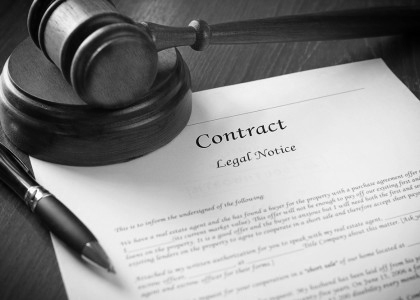What is Tortious Interference with Contract?
Posted on September 8, 2023 in UCC AND CONTRACT LAWIntroduction:
Tortious interference with contract is a legal cause of action that arises when someone intentionally interferes with another party’s ability to enforce a contract. This can happen in a variety of ways, such as by:
- Threatening or using force against the party to the contract
- Making false statements about the party to the contract
- Offering to pay the party to the contract to break the contract
Tortious interference with contract is a complex legal issue, and the specific requirements vary from state to state. However, the basic elements of the tort are as follows:
- There was a valid contract between the plaintiff and another party.
- The defendant knew of the contract.
- The defendant intentionally interfered with the performance of the contract.
- The defendant’s interference was wrongful.
- The plaintiff suffered damages as a result of the interference.
Let’s take a closer look at each of these elements.
Valid contract
The first element, a valid contract, is relatively straightforward. The contract must be enforceable by law and must not be illegal or void. This means that the contract must have been entered into by two or more parties who were competent to enter into contracts, and it must have been supported by consideration.
Knowledge of the contract
The second element, knowledge of the contract, is also relatively straightforward. The defendant must have known that the plaintiff had a contract with another party. This knowledge can be inferred from the circumstances, such as if the defendant was a party to the contract or if they had been informed of the contract by the plaintiff.
Intentional interference
The third element, intentional interference, requires that the defendant acted with the intent to interfere with the plaintiff’s contract. This does not mean that the defendant must have intended to cause the plaintiff harm. It is sufficient that the defendant intended to interfere with the contract, regardless of whether they intended to cause harm.
Wrongful interference
The fourth element, wrongful interference, requires that the defendant’s interference was not justified. This means that the defendant’s interference must have been improper or unfair. There are a number of factors that courts consider when determining whether interference is wrongful, such as the nature of the contract, the defendant’s motive, and the defendant’s means of interference.
Damages
The fifth element, damages, requires that the plaintiff suffered some type of loss as a result of the defendant’s interference. This loss can be either economic or non-economic. Economic losses include things like lost profits or lost business opportunities. Non-economic losses include things like emotional distress or pain and suffering.
If the plaintiff can prove all of these elements, they may be able to recover damages from the defendant. However, it is important to note that this is a complex legal issue, and it is always advisable to consult with an attorney before taking any legal action.
Conclusion:
Tortious interference with contract is a serious legal issue that can have a significant impact on the plaintiff. If you believe that you have been the victim of this tort, you should contact an attorney to discuss your legal options.
In addition to the above, here are some additional things to keep in mind about tortious interference with contract:
- The defendant’s interference can be either direct or indirect. Direct interference occurs when the defendant does something to actually prevent the plaintiff from performing the contract. Indirect interference occurs when the defendant does something that causes the plaintiff not to perform the contract, even if the defendant did not intend to interfere with the contract.
- The defendant’s interference can be justified in some cases. For example, if the defendant interferes with the contract to protect their own legitimate interests, the interference may be justified.
- The amount of damages that the plaintiff can recover will vary depending on the specific facts of the case.
If you have any questions about tortious interference with contract, you should contact an attorney to discuss your case.
A good lawyer can help you get the justice you deserve. Contact Bill today by calling 602-319-6899 to ensure your legal needs are conducted with confidence and legal clarity. Some of the issues covered under trial work and business law that our firm regularly handles involve:
Breach of contract, Non-compete agreements, Non-disclosure agreements, Employee theft and embezzlement, Insurance purchases and enforcement of policy coverage, Negotiation and/or enforcement of commercial leases, Negligence and gross negligence resulting in losses, Intentional acts causing a company to suffer damages, Tortious interference with contractual relationships, Unjust enrichment, Real Estate fraud, Consumer fraud, Conversion/Theft, Intentional and/or negligent misrepresentation, Business torts and Real estate title & escrow.
